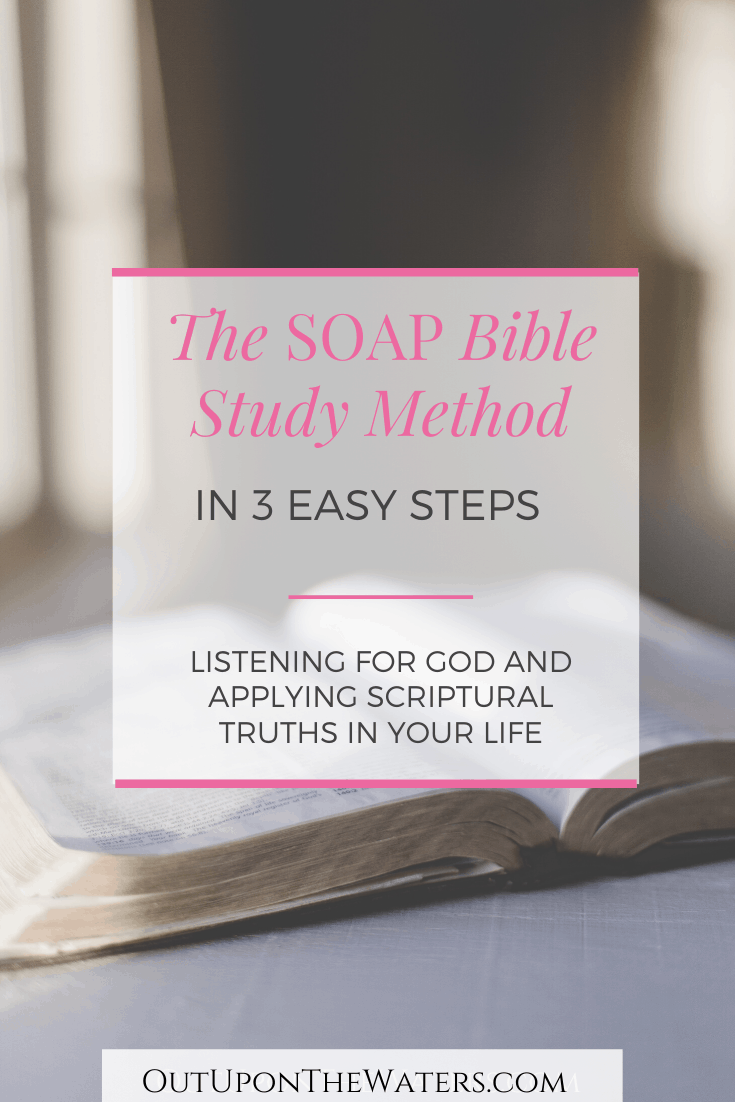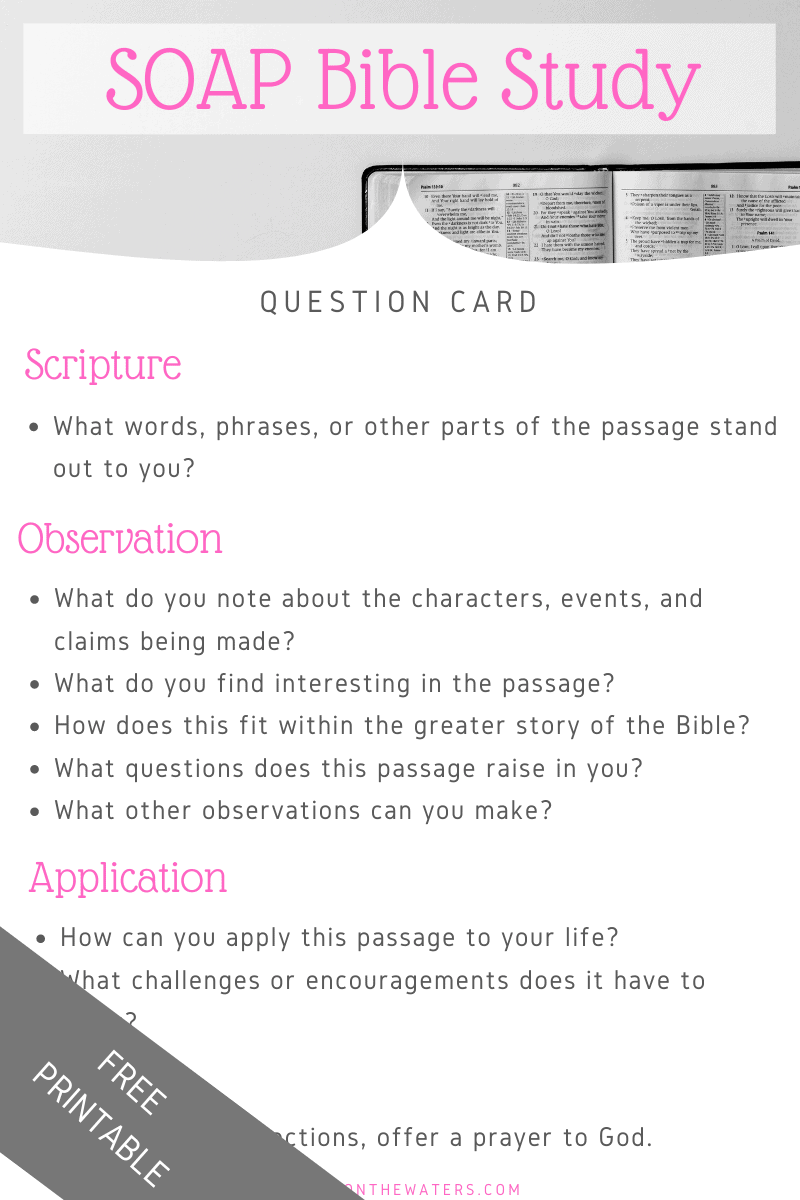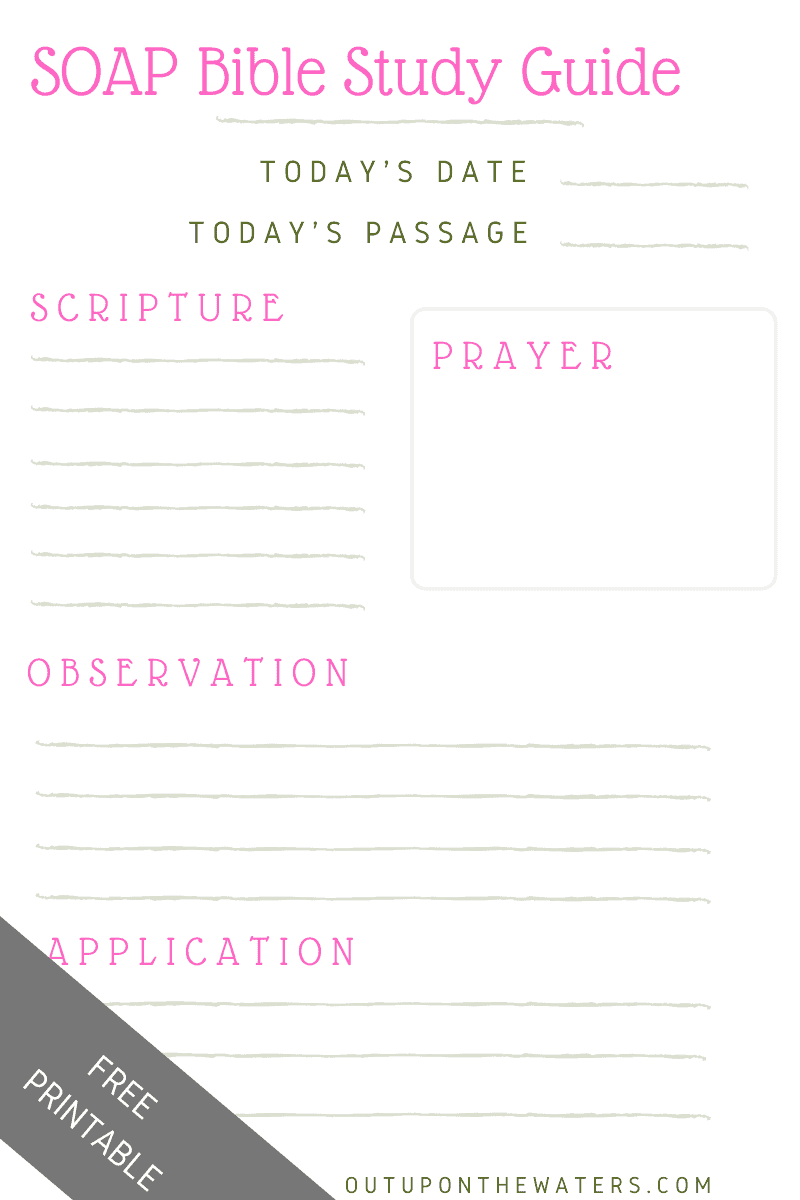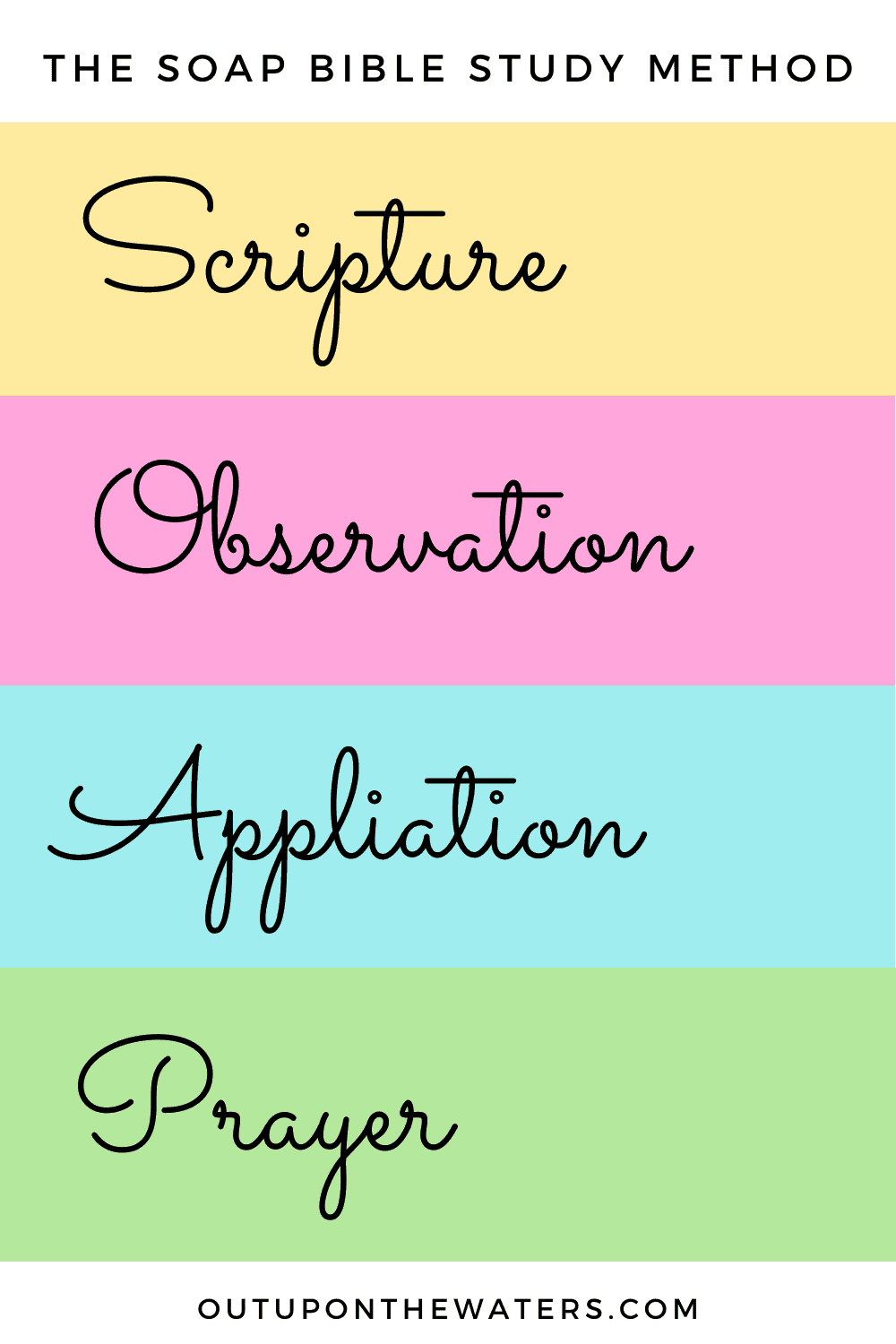We learned how to do the SOAP Bible study method the other day in our intergenerational small group (i.e. Bible study with adults and kids). We all loved this one. It’s simple. It’s easy to do in 5 minutes or in 30 minutes. And it’s adaptable for the kids.
[Read how to adapt the SOAP Bible Study Method for Kids here.]
Disclaimer: This post contains affiliate links. By purchasing products through these links, I earn a small commission, at no extra cost to you.

The SOAP Bible Study Method
This method of Bible study is super simple and straightforward. You can do this in as much or as little time as you have: just choose a shorter or a longer passage, and spend more or less time on observation and application.
What our family found especially helpful with the SOAP Bible study method is that it relies only on you and God.
SOAP is about:
- reading a passage of Scripture,
- listening for what God is trying to say to you through that piece of Scripture,
- reflecting on how you can take any Biblical truths that you find there into your life.
While you can definitely do this type of Bible study with a study Bible, this method requires no commentaries, no concordances, and no research. That makes the SOAP method especially non-threatening to Bible study beginners and to smaller kids.
No outside research means that means that you are getting less of the context of Scripture, and less of the depths that others have plumbed before you, but it also means that you are relying more on your personal relationship with God, and you are cultivating your ability to listen to that still, small voice.
—
Note: If you are a research addict like me and have a burning need to have cultural context, notes on authorship and audience, and just about the whole history of theology at your fingertips, you can easily do SOAP with a study Bible. My favourites are the Apologetics Study Bible and the Cultural Backgrounds Study Bible.
Doing SOAP with a study Bible means that, during the observation stage, you can peek at all kinds of background information about the text and use that to help inform your understanding of Scripture.
—
What SOAP stands for:
Scripture – Read a piece of Scripture and write down the sentences, phrases, and words that stand out to you.
Observation – What do you observe about the passage? About the characters, events, and claims being made? What did you find interesting about the Scripture? What did you learn?
Application – How can you apply this passage to your life? What challenges or encouragements does it have to offer?
Prayer – Based on your reflections, offer a prayer to God.

Want a quick and easy SOAP study guide?
Download your free question card here.
Download your free study guide template here.
These free printables will make using SOAP to engage with Scripture a breeze.

I find the SOAP method of Bible study to be at times fruitful and, honestly, at times challenging. The challenging times, for me, come when the passage presumes something about the cultural context that I don’t know about.
(I love commentaries and study Bibles! I love having all the background information at my fingertips.)
Try reading Revelation with the SOAP method, for instance! There’s a challenge.
Or trying reading Romans 4:1-15 using SOAP (the passage where Paul writes about Abraham being justified by faith and not by works). Another challenge! In that passage, you have to set aside all the language of circumcised and uncircumcised to see what Paul might be saying that applies to our current context.
Using The Message translation, by the way, is a quick and easy way to engage with Scripture in contemporary language and using contemporary images and metaphors.
But if you press through the hard bits, you will be rewarded.
Sometimes SOAP reminds you of a Biblical truth that you may have forgotten.
Sometimes it brings to light something that challenges the way that you currently see the world, or the way that you currently live.
Sometimes it sheds light on patterns in the world and in your own life that may be bringing your towards God or away from God.
I can think of countless examples.
Romans 1:25: “They exchanged the truth about God for a lie, and worshiped and served created things rather than the Creator.”
Who among us has not done this? Who among us has not exchanged the truth of a God who provides for our every need for a lie about the need to be financially comfortable and self-sufficient? Or exchanged the truth that true fulfillment comes only through Christ for the lie that fulfillment comes through having well-behaved children, or a bigger family, or a job that the world admires?
Sometimes paying attention to Scripture, observing and reflecting on what we find there, can challenge our pre-conceived ideas of what we thought the Bible said.
Take 1 Corinthians 11:2-16, for example, about how women are to cover their heads during worship… Actually, it’s about how every woman who prays or prophecies should cover her head (note how women are recognized as potential prophets).
And the part about woman being the glory of man. But, Paul continues…”in the Lord woman is not independent of man, nor is man independent of woman. For as woman came from man, so also man is born of woman. But everything came from God.” Jesus, being born of a woman, closes the loop, so to speak, that was opened in Genesis. And, besides this, all things come from God.
For some of us, the point of this passage may be that we are all dependent creatures, that none of us created ourselves.
For some of us, it may be a challenge to an independent-impulse. Our culture tells us to be “independent”, to be self-sufficient, but trying to be independent of God is what got Adam and Eve into the mess in the first place.
Of course, Paul goes on, in 1 Corinthians, to say that “the very nature of things” teaches us that it is a disgrace for man to have long hair, and that, conversely, a woman ought to have long hair for “it is given to her as a covering”. Paul defends this claim by saying that “we have no other practice.”
And so, it seems, that Scripture at times needs to raise in us questions and challenges: does God really believe that long hair in a man is a disgrace? Is it right to defend a practice, even a practice of the church, based solely on the logic that “it’s what we’ve always done”?
This practice of observing and applying, of sitting with the Word of God and listening for that still, small voice inside of you, is a practice in absorbing, learning, and wrestling.
At times, SOAP may remind you of important truths. At other times, it may raise in you questions that you will need to pursue.
At all times, SOAP is a way to engage with Scripture and open yourself up to what God may be nudging you towards.

